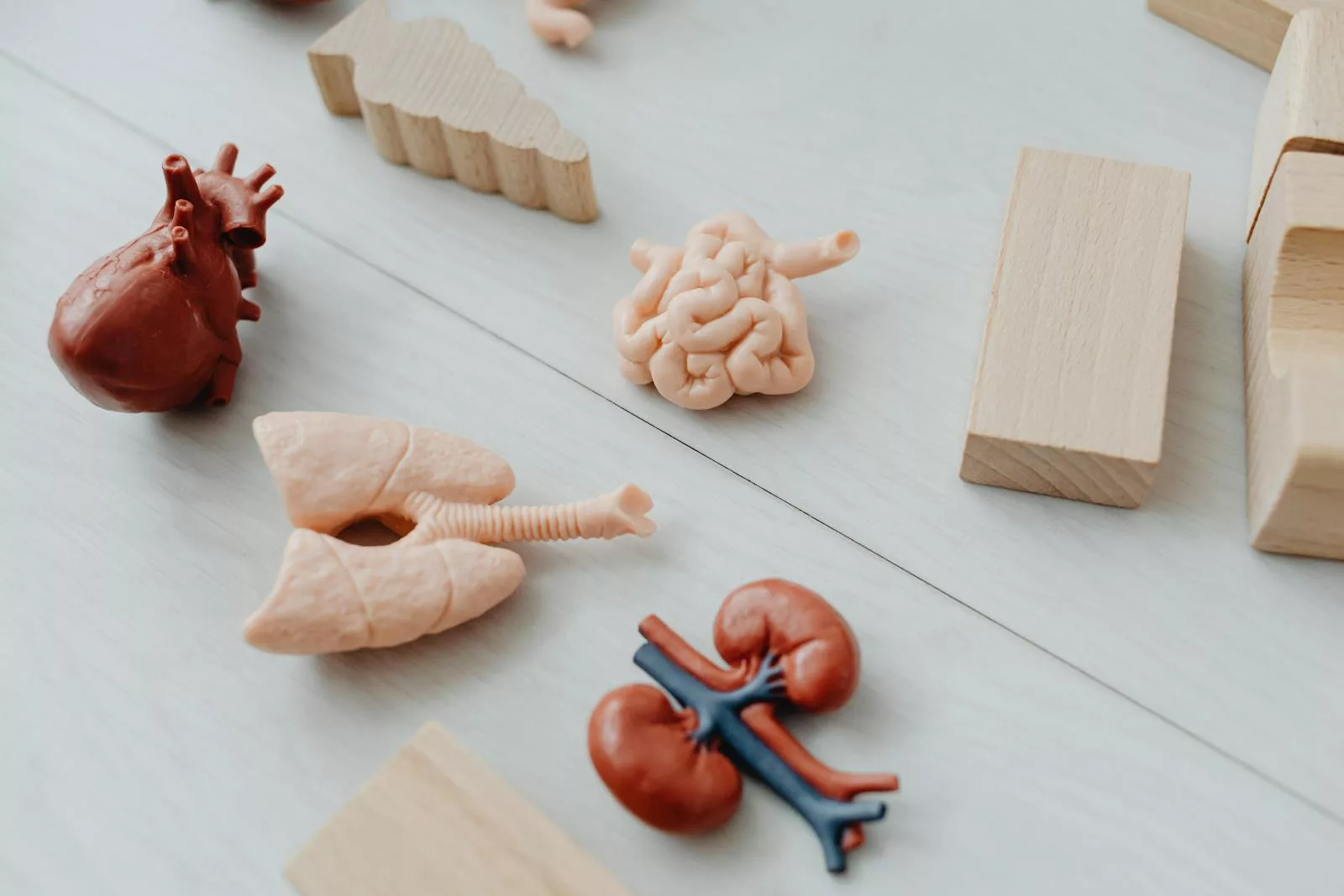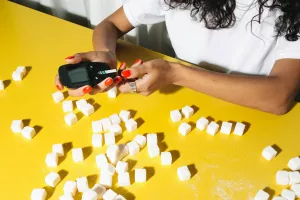Kidney stones are often described as one of the most excruciating experiences in urological health. They form when certain minerals and salts in the body crystallize and bind together, creating solid masses that can obstruct the urinary tract. This condition can disrupt daily life, causing immense physical discomfort and affecting mental well-being. By gaining a deeper understanding of what causes kidney stones, recognizing their symptoms early, exploring treatment options, and considering natural remedies, you can manage this condition more effectively and enhance your overall health.
Understanding Kidney Stone Formation
The development of kidney stones is a complex process influenced by various factors, including hydration levels, dietary choices, genetic predisposition, and underlying medical conditions. These factors can disturb the balance of substances like calcium, oxalate, and uric acid in urine, leading to crystallization and stone formation.
The Crucial Role of Hydration
Dehydration is a primary contributor to kidney stone formation. When the body lacks adequate hydration, the urine becomes concentrated with minerals such as calcium and oxalate, facilitating the formation of crystals. This issue is particularly prevalent in hot climates or among individuals with high levels of physical activity.
Staying Hydrated: Practical Tips
- Carry a reusable water bottle and set reminders to drink water throughout the day.
- Incorporate water-rich foods like cucumbers, watermelons, and strawberries into your diet.
- Use urine color as a hydration indicator; clear or light yellow urine is a sign of proper hydration.
Case Example: John, a marathon runner from Arizona, frequently suffered from kidney stones due to dehydration caused by his intensive training and the hot climate. By increasing his water intake and monitoring his urine color, he significantly reduced the recurrence of stones.
Dietary Influences and Adjustments
Your diet plays a vital role in either exacerbating or reducing the risk of kidney stones. High consumption of oxalate-rich foods, excessive salt, and animal proteins can alter urine chemistry, promoting stone formation. Oxalate binds with calcium, forming crystals, while high salt intake increases urinary calcium excretion.
Dietary Adjustments for Prevention
- Opt for plant-based proteins like lentils, chickpeas, and tofu instead of red meat.
- Choose low-oxalate vegetables such as cauliflower, cabbage, and cucumbers.
- Reduce processed food consumption to lower salt intake.
Case Example: Sarah, who enjoyed salty snacks and spinach salads, noticed a reduction in stone formation by switching to a diet lower in oxalates and sodium. She diversified her green vegetable intake and chose unsalted nuts as snacks.
Genetic Predisposition: What to Know
A family history of kidney stones can increase an individual’s risk due to inherited traits that affect mineral processing in the kidneys. This genetic factor requires proactive management to mitigate risk.
Steps to Manage Genetic Risk
- Maintain consistent hydration and balanced calcium intake.
- Moderate consumption of foods rich in oxalates and uric acid.
- Consider regular screenings or genetic counseling for better risk assessment.
Case Example: Mike, aware of his family’s history with kidney stones, underwent genetic counseling. By adopting preventive lifestyle changes early, he managed to avoid developing stones well into adulthood.
Impact of Medical Conditions
Certain medical conditions like gout, hyperparathyroidism, obesity, and recurrent urinary tract infections can increase the risk of kidney stones by altering urine composition.
Management Strategies for Underlying Conditions
- Schedule regular health check-ups to monitor these conditions.
- Follow medical advice and lifestyle modifications as prescribed.
- Implement weight management strategies to reduce obesity-related risks.
Case Example: Lisa, diagnosed with hyperparathyroidism, worked closely with her doctor to manage her condition and adjusted her diet to prevent stone formation, significantly enhancing her quality of life.
Medication Side Effects
Certain medications, including diuretics and calcium-based antacids, can contribute to stone formation if not taken with adequate hydration.
Managing Medication-Related Risks
- Discuss potential side effects with your healthcare provider.
- Review dosages and explore alternatives if necessary.
- Ensure proper hydration, especially when taking medications that affect kidney health.
Case Example: Tom, who was on diuretics for hypertension, frequently experienced kidney stones. By consulting his doctor, he adjusted his medication and increased water intake, which helped prevent future stones.
Recognizing Symptoms of Kidney Stones
Kidney stone symptoms can vary based on the stone’s size and location. Smaller stones might pass unnoticed, while larger ones can cause significant discomfort and other symptoms.
Key Symptoms to Watch For
- Severe Pain: Intense pain in the back, side, lower abdomen, or groin is the most common symptom. The pain may fluctuate as the stone moves.
- Blood in Urine: Pink, red, or brown urine can indicate stones, caused by abrasions in the urinary tract.
- Frequent Urination: An urgent need to urinate, often with small amounts, can signal a stone in the lower urinary tract.
- Nausea and Vomiting: These symptoms can occur due to intense pain or as the body responds to urinary obstruction.
- Cloudy or Foul-Smelling Urine: This may suggest an infection associated with kidney stones, requiring prompt medical attention.
- Fever and Chills: These symptoms indicate a possible urinary tract infection complicating kidney stones and necessitate urgent treatment.
Avoiding Common Mistakes: Ignoring mild symptoms like frequent urination or slight discomfort can lead to severe complications. Early recognition and intervention can minimize complications and ensure a faster recovery.
Treatment Options for Kidney Stones
The approach to treating kidney stones depends on their size, type, and symptom severity. Modern medicine offers a range of effective treatments, from non-invasive techniques to surgical procedures.
Hydration as a Basic Treatment
For small stones, increasing water intake to produce at least 2.5 liters of urine daily can help flush them out naturally. Consistent hydration reduces the concentration of stone-forming substances in urine.
Research Insight: A study found that patients who increased their water intake by 50% had a 20% higher rate of passing small stones compared to those who did not adjust their hydration habits.
Medications for Relief and Prevention
- Pain Relievers: Over-the-counter medications like ibuprofen or acetaminophen can alleviate discomfort during stone passage.
- Alpha Blockers: These medications relax the muscles in the ureter, facilitating easier passage of stones and reducing pain.
- Preventive Drugs: Depending on the stone type, medications like potassium citrate (to alkalize urine) or allopurinol (to lower uric acid levels) may be prescribed to prevent recurrence.
Case Example: Alan found relief from his frequent stone issues by taking prescribed potassium citrate, which helped maintain a balanced pH level in his urine.
Medical Procedures for Stone Removal
- Shock Wave Lithotripsy (SWL): This non-invasive procedure uses high-energy sound waves to break larger stones into smaller, passable pieces, suitable for medium-sized stones.
- Ureteroscopy: A thin tube with a camera is inserted into the ureter to locate and remove stones, sometimes using lasers to fragment them.
- Percutaneous Nephrolithotomy: This minimally invasive surgery removes large or complex stones directly from the kidney through a small incision in the back.
Case Example: Emily had a particularly large stone that couldn’t pass naturally. After undergoing ureteroscopy, she was able to return to her daily activities pain-free. These medical treatments provide targeted relief, essential for addressing stones that cannot pass naturally.
Embracing Natural Remedies for Kidney Stone Prevention
Alongside medical treatments, natural remedies can support kidney health and reduce stone risk. These strategies focus on prevention and overall well-being.
Staying Hydrated
Regular water consumption is crucial in preventing stone formation. Aim for 8-10 glasses daily, or more in hot climates or with vigorous activities. Hydration helps flush out excess minerals, reducing the risk of crystal buildup.
Community Insight: A health initiative in a tropical region emphasized hydration education, resulting in a 30% decrease in kidney stone cases over two years.
Incorporating Citrus Fruits
Citrus fruits like lemons, limes, and oranges are rich in citric acid, which inhibits stone formation by binding to calcium. Drinking lemon water regularly can be particularly beneficial, especially on an empty stomach to help flush the kidneys.
Case Example: Mark, who had recurrent calcium stones, began drinking lemon water each morning. Over time, his stone formation decreased significantly, as confirmed by his urologist.
Reducing Salt and Animal Protein Intake
Limiting sodium intake prevents calcium accumulation in urine, a common factor in stone formation. Similarly, moderating animal protein consumption can lower uric acid levels, reducing the risk of uric acid stones.
Consuming Calcium-Rich Foods
Adequate calcium from foods like milk, yogurt, and leafy greens helps prevent stones by binding oxalates in the digestive tract, reducing urinary oxalate levels. Balancing calcium intake is key, as both excess and deficiency can increase stone risk.
Research Insight: A study published in the American Journal of Clinical Nutrition showed that a balanced calcium intake could reduce the risk of kidney stones by 20% in men.
Drinking Herbal Teas
Herbal teas, such as those made from dandelion, nettle, or parsley, can support kidney health. Acting as natural diuretics, these teas promote increased urine production, aiding in flushing out toxins and excess minerals.
Using Apple Cider Vinegar
Diluting apple cider vinegar in water and drinking it regularly may help dissolve smaller stones. Its acetic acid content aids in breaking down mineral deposits and promoting an alkaline environment in the body.
Eating Magnesium-Rich Foods
Magnesium-rich foods like spinach, almonds, and avocados can reduce oxalate absorption in the digestive tract, lowering stone risk. Magnesium supports a healthy mineral balance, preventing crystallization processes that lead to stones.
Tips for Preventing Kidney Stones
Preventing kidney stones involves adopting lifestyle and dietary changes:
- Stay Active: Regular exercise enhances metabolism and kidney function by promoting circulation and waste elimination.
- Balance Your Diet: Prioritize a diet rich in fruits, vegetables, and whole grains while avoiding excessive sugary or processed foods. A balanced diet reduces metabolic imbalances contributing to stones.
- Monitor Fluid Intake: Ensure adequate water consumption, especially if you’ve had kidney stones before or live in a hot climate.
- Follow Medical Advice: Work with your healthcare provider to develop a personalized prevention plan based on your medical history and specific stone composition.
Case Example: A family with a history of kidney stones made collective lifestyle changes, including regular exercise and dietary adjustments, leading to a significant reduction in stone occurrence among its members.
Kidney stones, though painful and often recurring, can be effectively managed with the right knowledge and proactive measures. By understanding the causes, recognizing early symptoms, and exploring a combination of medical treatments and natural remedies, individuals can significantly improve their outcomes. Adopting a kidney-friendly lifestyle that emphasizes hydration, balanced nutrition, and regular health check-ups can reduce the risk and support overall urinary health. If you suspect you have kidney stones or experience severe symptoms, consulting a healthcare professional for an accurate diagnosis and treatment is crucial. With proper care and prevention, maintaining a healthy, stone-free life is entirely possible.




